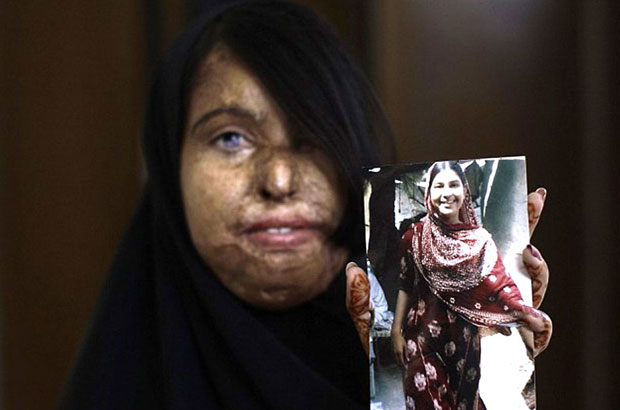As long as there is gender-based violence, we will never achieve gender equality. The Prime Minister appointed me as Ministerial Champion for Tackling Violence against Women and Girls Overseas in 2010 for exactly that reason. And today Poland organised their first ever high-level conference on women’s equality, which I have just attended and which focused on this issue.
Around the world 67% of women will experience gender-based violence at least once in their lives. This doesn’t just cause short-term damage. It can silence women’s voices, stop them from accessing work and economic opportunities, and prevent them from making choices about their lives. It closes down women’s freedom and opportunities, but it also has a knock-on impact on families, societies and countries as a whole. This makes combating gender-based violence a prerequisite for achieving gender equality and reducing poverty.

This afternoon I had the chance to share the UK’s experience on tackling gender-based violence.
In 2010 the Coalition government published its Call to End Violence against Women and Girls strategy. This strategy is a public declaration by the government that violence against women and girls is unacceptable and is an issue that we are committed to tackling together – in the UK and overseas. We launched our latest National Action Plan to deliver this strategy on 8March to mark International Women’s Day.
The UK government announced this weekend that we will hold a summit this year on FGM and early and forced marriage – 2 examples of gender-based violence that we are committed to eradicating, and that link the domestic picture in the UK with our work in developing countries.
In the UK, our Forced Marriage Unit provides assistance to victims as well as reaching out to practitioners and communities to ensure that people working with victims are fully informed of how they can help. Overseas, the unit provides consular assistance to victims prior to or after a forced marriage to secure their return to the UK.
In 2012, the Prime Minister announced that the Government will make forcing someone to marry a criminal offence. In doing so, we are sending out a clear message that this brutal practice is totally unacceptable and will not be tolerated in the UK. That legislation is currently being progressed.
Internationally, the UK government is driving change throughout the humanitarian system to ensure that girls and women are protected from violence during an emergency; leading the way on tackling sexual violence in conflict through our Preventing Sexual Violence Initiative; leading a flagship programme on female genital mutilation (FGM) at ending the practice within a generation; and investing in evidence of what works to prevent violence against women and girls in the first place. DFID supports programmes to address violence against girls and women in over 20 countries.
We believe that our approach and actions in the UK are making a difference, as well as making a strong contribution to our international work – and in turn our international work is intrinsically linked to how we make progress here in the UK. But we are not complacent – there is much more to be done. We will never stop our efforts to tackle violence against women and girls until we have achieved our ambition that women across the world can live productive and happy lives, safe from violence and abuse.
Keep in touch. Sign up for email updates from this blog, or follow Lynne on Twitter.

Recent Comments